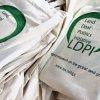Location
The Land Deal Politics Initiative (LDPI) is a network of the research programme of Political Economy of Resources, Environment and Population (PER) of the International Institute of Social Studies in The Hague, Part of Erasmus University Rotterdam.
The aim of LDPI is for a broad framework encompassing the political economy, political ecology and political sociology of land deals.
Our general framework is based on answering 6 key questions:
- Who owns what?
- Who does what?
- Who gets what?
- What do they do with their surplus wealth?
- Ho do social classes and groups in society and within the state interact with each other?
- How do changes in politics get shaped by dynamic ecologies and vice versa?
First steps will involve data-gathering through literature reviews, followed by research into more targeted national contexts. This will help us understand a broader set of 'so what' questions.
Members:
Resources
Displaying 6 - 10 of 27Politics of Land Grabbing in the Borderland: A Case Study of Chongjom Border Market, Kabcheong District, Surin Province
Chongjom border is a contested area which reflects power-related relationship between center and its marginal space. From deserted borderland in the buffer zone during Khmer Rouge period, Chongjom becomes an emerging 4th ranking of cross-border trading between Thailand and Cambodia, where value of exporting goods have been increased up to 224.05 % in 2013. The politics of changes in land use and property relations change lead to widen of land grabbing in the area.
Different Regions, Different Reasons? Comparing Chinese land-consuming outward investments in Southeast Asia and Sub-Saharan Africa
Research indicates that key parameters of “land grabbing” differ across regions (e.g., ILC 2012) – particularly in view of who invests and/or when the bulk of investments occurred. At the same time, my review of the “land grab” literature since 2008 reveals that hardly any comparative assessments of “land grabbing” from a home country perspective exist that study whether and/or in which way and why “land grabs” of a single investor country differ across regions.
Land Acquisitions in Northeastern Cambodia: Space and Time matters
Over the last decade, the highlands of Ratanakiri province in northeastern Cambodia have witnessed massive land acquisitions and profound land use changes, mostly from forest covers to rubber plantation, which has contributed to rapidly and profoundly transform the livelihoods of smallholders relying primarily on family-based farming. Based on village- and households-level case studies in two districts of the province, this paper analyses this process and its mid-term consequences on local livelihoods. We first look at who has acquired land, where, how and at what pace.
Resistance to Land Grabbing and Displacement in Rural Cambodia
In rural Cambodia indiscriminate, illegitimate and often violent land grabs in the form of Economic Land Concessions (ELCs) have triggered myriad local responses by peasants facing evictions from private and communal lands. Drawing on fieldwork in Kratie and Koh Kong provinces, this chapter looks at the various forms of local resistance to government-sanctioned dispossession and displacement and discusses their effectiveness in bringing about socio-political and institutional change.
Transnationalization of Resistance to Economic Land Concessions in Cambodia
The granting of economic land concessions (ELCs) over large parts of Cambodia has begun to attract global attention. It has also become a key focal point for civil society mobilization in Cambodia as well as for transnational activism directed at targets both within and outside Cambodia.


